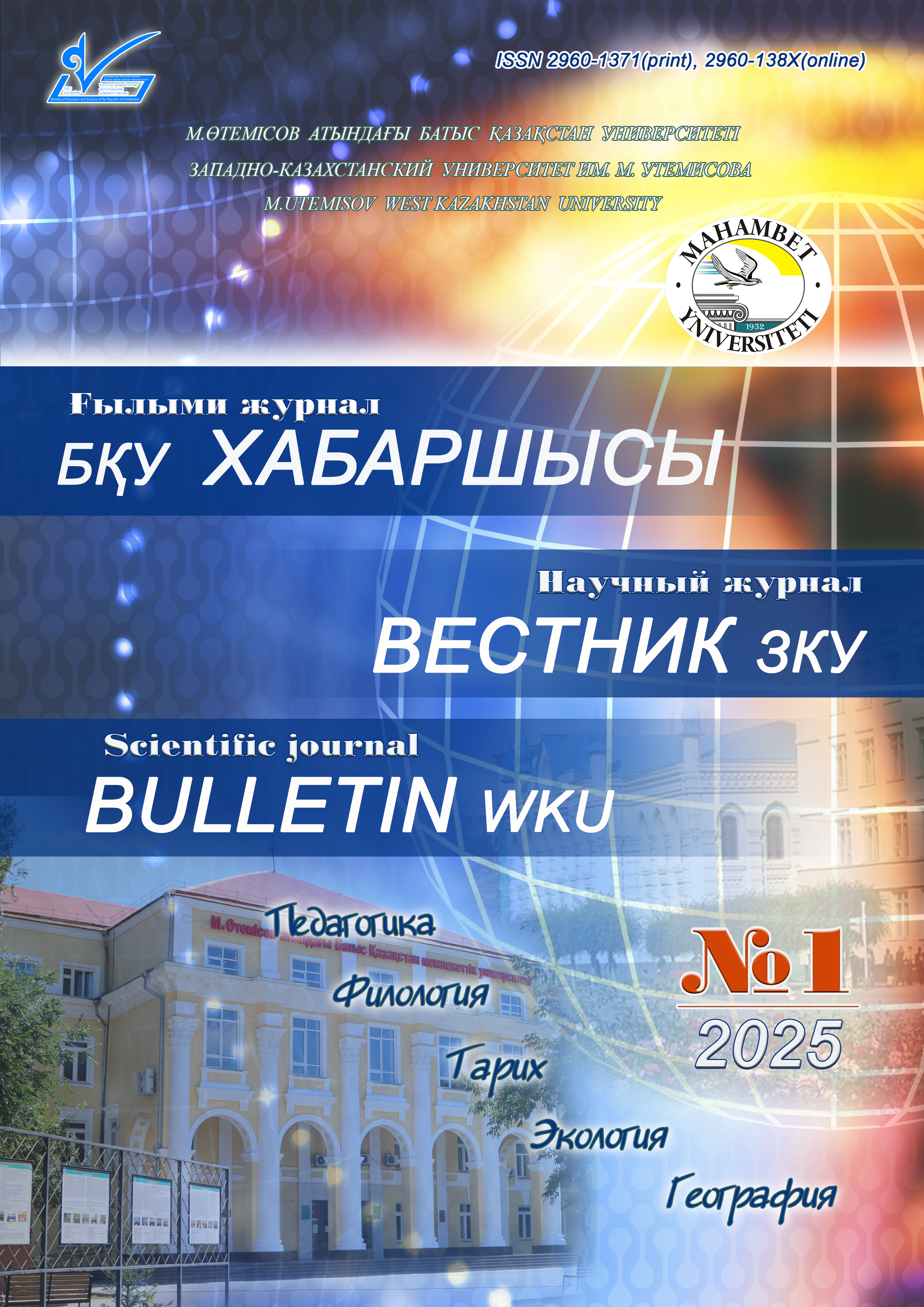ARGUMENTS FOR PROCESSING BIO-WASTE IN KAZAKHSTAN TO PRODUCE ENERGY RESOURCES AND FERTILIZERS
Abstract
The modern energy sector of Kazakhstan largely relies on the use of non-renewable energy sources such as oil, natural gas, coal, uranium, and other mineral resources, the extraction of which is justified from economic and technological perspectives. However, their exploitation cannot continue indefinitely. Therefore, Kazakhstan is currently focusing on the development of alternative energy sources (construction of nuclear power plants, development of wind and solar power networks). Kazakhstan is an agricultural region, and its agricultural activities result in the generation of waste, the volume of which increases annually. This leads not only to an increase in waste accumulation in the environment but also to rising greenhouse gas emissions, which scientists believe contribute to global climate change. Modern methods of reducing agricultural waste without processing them are no longer relevant. Thus, attention should be given to the development of local bioelectric power plants that process waste to produce biogas and mineral fertilizers, with subsequent electricity generation. The development of local biogas plants is especially pertinent today, as Kazakhstan, like many other countries, is pursuing carbon neutrality. The state has prioritized the development of this sector, implementing support mechanisms. This article discusses the volume of agricultural waste, calculates greenhouse gas emissions from the agricultural sector, suggests alternative waste processing methods, describes the experiences of existing plants in the country, and highlights types of government support and existing barriers



